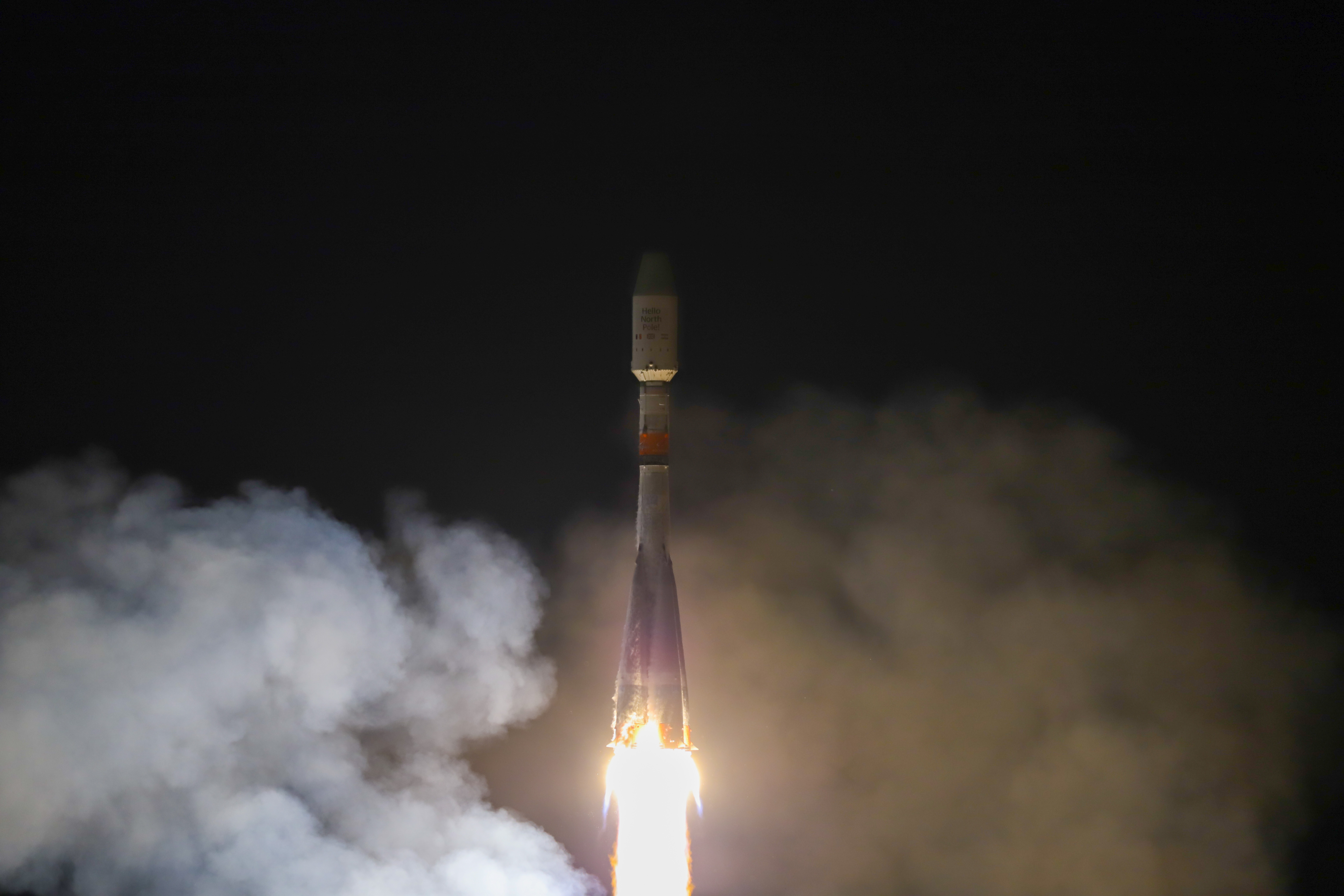 EMERGING TECH
EMERGING TECH
 EMERGING TECH
EMERGING TECH
 EMERGING TECH
EMERGING TECH
British satellite constellation firm OneWeb Ltd. completed a successful launch today, sending 36 satellites into orbit that it said will pave the way for it to roll out a commercial internet service in parts of the northern hemisphere.
OneWeb, which now has more than 200 satellites in orbit that will eventually be used to provide a global service, said the launch from Russia’s Far East will enable it to provide connectivity everywhere north of 50 degrees latitude.
The company was founded in 2012, and aims to provide a high-speed internet connectivity service across the entire world. It sees an opportunity especially in more remote areas that lack physical, land-based communications infrastructure.
OneWeb has already confirmed signal acquisition with the new satellites that were launched by a Russian Soyuz 2.1b rocket from the Vostochny Cosmodrome. It said it will take about one month for each of the satellites to increase their altitude from 450 kilometers to 1,200 kilometers. Once that has been achieved, the satellites will go into service.
The satellites will help deliver connectivity to regions that include the United States, United Kingdom, Alaska, Northern Europe, Greenland, Iceland, Canada and the Arctic.
The company is aiming to launch its commercial service by the end of the year. It said service demonstrations in several locations will begin this summer, including in Alaska and Canada.
Next year, the company is planning to send four or five more batches of satellites into orbit before launching its global service.
“The next phase is to bring the latitude down to the 20 degree mark in the north and also bring the south pole into play and up to 20 degrees in the south,” Chris McLaughlin, OneWeb’s chief of government, regulation and engagement, told SpaceNews in an interview. “Then there’ll be a belt in the middle of the Earth, which will be filled in during the course of next year.”
Today’s launch marks a successful turnaround for OneWeb, which only emerged from bankruptcy protection in November 2020 after receiving a $1 billion investment from the British government and Indian business conglomerate Bharti Enterprises Ltd., each putting in $500 million.
Earlier this week, Bharti followed up with another $500 million investment, giving it a 38.6% stake in OneWeb. The British government, French satellite operator Eutelsat SA and Japan’s SoftBank Group Corp. each own a 19.3% stake in the company. However, the British government’s stake is a “golden share” that ensures it has priority voting rights.
The additional $500 million invested by Bharti will ensure OneWeb has the funds it needs to complete the launch of its satellite constellation, which will eventually number 650 spacecraft.
OneWeb is making progress commercially too. On Sunday, it announced it had signed a memorandum of understanding with the British telecommunications firm BT Group Plc. The two companies will explore ways in which they can work together, the BBC reported, in both Britain and other parts of the world.
The hope is that BT will deploy OneWeb as part of its broadband services, allowing it to provide superior coverage in more remote parts of the U.K. where infrastructure is limited.
“Backed by the British government, OneWeb proves what is possible when public and private investment come together, putting the U.K. at the forefront of the latest technologies, opening up new markets, and ultimately transforming the lives of people around the world,” U.K. Prime Minister Boris Johnson told the BBC.
Constellation Research Inc. analyst Holger Mueller told SiliconANGLE that the battle for reaching remoter parts of the world through satellite-based Internet connectivity is in full swing, and that OneWeb, after being rescued from bankruptcy, will likely be one of the first companies to go fully operational across the globe if it meets its 2022 target. “But it will be key to show viability at both a technological and a commercial level if it is going to succeed at offering Internet to consumers north of the 50th parallel,” he said.
One of OneWeb’s main competitors will be tech entrepreneur Elon Musk’s SpaceX Corp., which has deployed more than 1,500 satellites in space as part of its Starlink constellation. Starlink appears to be leading the race as it has already begun beta tests of its internet services, and Musk said this week he hopes to have a global service up and running with up to 500,000 users within the next year.
Support our mission to keep content open and free by engaging with theCUBE community. Join theCUBE’s Alumni Trust Network, where technology leaders connect, share intelligence and create opportunities.
Founded by tech visionaries John Furrier and Dave Vellante, SiliconANGLE Media has built a dynamic ecosystem of industry-leading digital media brands that reach 15+ million elite tech professionals. Our new proprietary theCUBE AI Video Cloud is breaking ground in audience interaction, leveraging theCUBEai.com neural network to help technology companies make data-driven decisions and stay at the forefront of industry conversations.